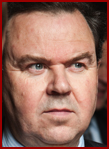Regulators and politicians rightfully seek to address the challenges thrown up by the financial crisis. Nevertheless, little attention has been paid to professional investors whose interests it seeks to protect. Hans Janssen Daalen comments…
Fiduciary management has its origins in the Netherlands – not surprisingly, as the Netherlands is the home country of many large pension funds. Dutch fiduciary managers are among the largest and most experienced in the field. Several Dutch providers already offer their services abroad in other European markets, including the UK and Switzerland. Today, fiduciary management is also known by a number of other names, which can be as varied as ‘implemented consulting’ or ‘solvency management’.
Unfortunately, it may lead to confusion about what the ‘fiduciary management’ concept should contain. I shall explain why.
Broadly, fiduciary management refers to the outsourcing of pension fund management to a single third party. This provider typically takes control of the pension fund from the scheme’s trustees (although the trustees stay accountable towards authorities) with responsibility for, inter alia, advising the trustees in all matters concerning the pension funds’ balance and overall strategy, advising and executing recovery plans, portfolio construction, manager selection, monitoring and reporting. Fiduciary providers address governance issues that go beyond asset management, and indeed, as regulations become more complex, trustees responsible for overseeing pension schemes are heavily relying on their fiduciary managers for greater support in every aspect of pension fund governance.
Historically, being a pension fund trustee was about hiring and firing asset managers. That was the main activity providers took over from the trustees a couple of years ago. However, the landscape is much more complex today. Pension funds face tough funding decisions, difficult sponsor negotiations, a wider universe of asset classes, complex derivative transactions and counterparty exposure. And nowadays above all, stronger supervision, problems with asset liability matching and recovery schemes. A fiduciary manager is supposed to address all the different issues on both sides of the equation of the pension fund with a team of full-time professionals armed with better monitoring tools, rather than entrusting these complexities to small pension fund organisations and part-time trustees who lack the expertise and the sources of the fiduciary manager. This is the very reason for outsourcing. Good investment returns are but one driver behind fiduciary management. The main driver is to add the necessary professionalism to the pension fund.
Together with the growing popularity of the fiduciary concept, greater confusion arose about the responsibilities of the fiduciary manager. In the interest of market integrity and in order to provide guidance, Dufas last year published the Principles of Fiduciary Management. The responsibilities of both the trustees and the fiduciary manager are clearly pointed out. In important matters, the trustees should always seek for a second opinion. Potential conflicts of interest with a single provider are obvious.
Meanwhile, the Dufas fiduciary principles have become the standard on the Dutch pension fund market, as the Dutch Association of Company Pension Funds (OPF) strongly advised its members to take good notice of the Dufas fiduciary principles and the model agreement attached to it. A great service for the institutional business! Visit: www.dufas.nl/index.cfm/go/English .
Realising good investment returns remains a critical, if not the most important, element for
a pension fund. Therefore Dufas is highly concerned about the restrictions the proposed Directive for Alternative Investment Fund Managers might impose on professional investment management. Regulators and politicians rightfully seek to address the challenges thrown up by the financial crisis. Nevertheless, little attention has been paid to professional investors whose interests it seeks to protect, as Eumedion, the Dutch representative organisation of institutional investors in the field of corporate governance and ABI, the UK’s leading financial services trade association of insurers, argue. Investors need to allocate assets effectively, they need the widest possible range of choice available. The proposed directive would effectively limit access to non-European funds. Furthermore, its scope is too wide and will limit investment opportunities which do not pose a systemic risk. The compliance burden on those affected may far outweigh any benefits. The hastily drafted AIFM directive imposes requirements designed to benefit professional investors which are more onerous than those which already exist in the long-lived Ucits regime to protect retail investors. The world is upside down. This can not be true!
• Hans Janssen Daalen is the general director of Dufas





